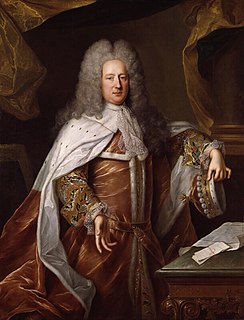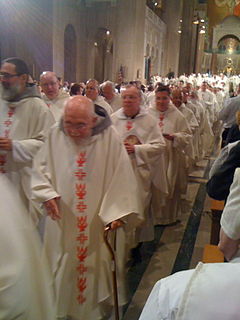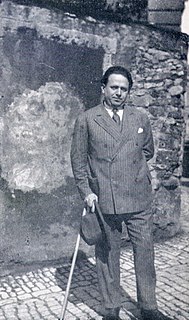A Quote by John F. Kennedy
Where nature makes natural allies of us all, we can demonstrate that beneficial relations are possible even with those with whom we most deeply disagree-and this must someday be the basis of world peace and world law.
Related Quotes
No religion ever appeared in the world whose natural tendency was so much directed to promote the peace and happiness of mankind. It makes right reason a law in every possible definition of the word. And therefore, even supposing it to have been purely a human invention, it had been the most amiable and the most useful invention that was ever imposed on mankind for their good.
We can never obtain peace in the world if we neglect the inner world and don't make peace with ourselves. World peace must develop out of inner peace. Without inner peace it is impossible to achieve world peace, external peace. Weapons themselves do not act. They have not come out of the blue. Man has made them. But even given those weapons, those terrible weapons, they cannot act by themselves. As long as they are left alone in storage they cannot do any harm. A human being must use them. Someone must push the button. Satan, the evil powers, cannot push that button. Human beings must do it.
The prayer of listening makes things simple but it also makes us vulnerable, and that is frightening. Listening makes us open to Christ, the Word of God, spoken in all things: in the material world, the Scriptures, the Church, and sacraments and, sometimes most threateningly, in our fellow human beings. To listen at prayer is to take the chance of hearing the voice of Christ in the poor, the weak, those whom we love and those whom we do not love.
Nature consists of facts and of regularities, and is in itself neither moral nor immoral. It is we who impose our standards upon nature, and who in this way introduce morals into the natural world, in spite the fact that we are part of this world. We are products of nature, but nature has made us together with our power of altering the world, of foreseeing and of planning for the future, and of making far-reaching decisions for which we are morally responsible. Yet, responsibility, decisions, enter the world of nature only with us
Militarists say that to gain peace we must prepare for war. I think we get what we prepare for. If we want a world where peace is valued, we must teach ourselves to believe that peace is not a ‘utopian vision’ but a real responsibility that must be worked for each and every day in small and large ways. Any one of us can contribute to building a world where peace and justice prevail.
If we suppose a sufficient righteousness and intelligence in men to produce presently, from the tremendous lessons of history, an effective will for a world peace - that is to say, an effective will for a world law under a world government - for in no other fashion is a secure world peace conceivable - in what manner may we expect things to move towards this end? . . . It is an educational task, and its very essence is to bring to the minds of all men everywhere, as a necessary basis for world cooperation, a new telling and interpretation, a common interpretation, of history.
Unless and until we have peace deep within us, we can never hope to have peace in the outer world. You and I create the world by the vibrations that we offer to it. If we can invoke peace and then offer it to somebody else, we will see how peace expands from one to two persons, and gradually to the world at large. Peace will come about in the world from the perfection of individuals. If you have peace, I have peace, he has peace, and she has peace, then automatically universal peace will dawn.
People take it for granted that the physical world is both ordered and intelligible. The underlying order in nature - the laws of physics - are simply accepted as given, as brute facts. Nobody asks where they came from; at least not in polite company. However, even the most atheistic scientist accepts as an act of faith that the universe is not absurd, that there is a rational basis to physical existence manifested as law-like order in nature that is at least partly comprehensible to us. So science can proceed only if the scientist adopts an essentially theological worldview.

































